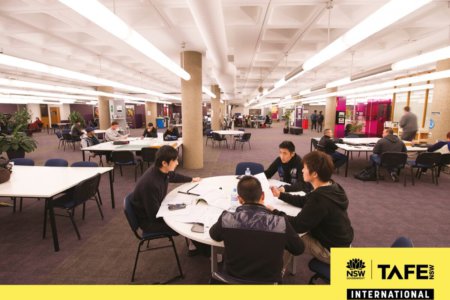
When it comes to choosing between vocational education and the regular college route, it is a decision that will shape an individual’s entire career. The current economic climate is highly competitive with the number of degree-holders worldwide set to reach 300 million by 2030. These numbers have encouraged some to begin weighing their options in an attempt to stand out.
Considering the time commitment and cost, more and more individuals are contemplating foregoing college and taking the technical and vocational education and training (TVET) route. This option is especially great for those interested in a specific field of work and for those who are looking to gain hands-on training through a specialised programme.
Many skilled trades are projected to disappear amidst the rise of automation, however, many other trades and occupations will stay in-demand. Despite rapid changes, the world will always need professionals that take on the roles of air traffic controllers, construction managers, dental hygienists, logistics managers, web developers – most of which acquire their education in trade school.
With job creation acknowledged as a global need by international entities like UNESCO, which estimates that at least 475 million new jobs need to be created over the next decade to absorb the 73 million currently unemployed youth population, as well as the influx of 40 million new entrants to the labour market per year. Vocational programmes provide a solution, assuming they are directly linked to market needs.
 Pupils wearing face masks attend a metal workshop at the Hans-Sachs vocational college (Hans-Sachs-Berufskolleg) in Oberhausen, western Germany. Source: Ina Fassbender/AFP
Pupils wearing face masks attend a metal workshop at the Hans-Sachs vocational college (Hans-Sachs-Berufskolleg) in Oberhausen, western Germany. Source: Ina Fassbender/AFP
These programmes are offered by institutions that were designed to give students the training and experience they will need to apply to their chosen professions once they graduate. These teachings are often delivered through a combination of classroom lectures and hands-on training in a lab environment. Most schools also offer online training services, which makes it more accessible to those who require the option of flexibility.
Why else should you choose a vocational education in 2021? Here are the key benefits:
Cost-efficiency of vocational education
TVET institutions are known to be less expensive than attending a college or university. A four-year college degree can come up to US$127,000 on average, while trade school programmes cost around US$33,000. Since vocational training programmes can be completed in two years or less, the total cost is drastically reduced.
Specialised programmes
Trade school programmes are unique. Most four-year institutions do not have career-based programmes that focus solely on practical skills. Programme options include auto-repair, carpentry, cosmetology, welding, catering and culinary arts, paralegal studies, and more.
Practical experience
One of the advantages of vocational training is that instructors are often industry professionals. The opportunity to learn from an experienced professional in the field gives deep insight on what it takes to be successful on the job. Most programmes include externships that allow learners to work in the industry for credit. This practical experience often leads to an apprenticeship or even a job offer.
Flexible schedules
TVET programmes are typically designed to help nontraditional students who wish to go to school while juggling other responsibilities. Options such as evening, weekend, and online learning make this perk beneficial for those who are trying to develop new career expertise while working full-time.
Hands-on environment
Classes are usually smaller with teachers providing hands-on instructions thoroughly in a smaller environment. Practical skills often come with individualised attention from professors, and a better opportunity to learn from and get to know your peers.
Join the workforce quickly
Another advantage to a vocational education is that students can complete their training in a short period of time. Programme durations vary, but most can be completed in two years or less. For example, emergency medical technicians are ready to begin their careers after just one semester.
Well-paying career opportunities
Most TVET schools publish available job placements to inform prospective students about the likelihood of employment upon graduation. Vocational job placement for graduates is generally high, however, it varies by job type. Some specialisations even have the potential to crack the six-figure mark with the right amount of experience.
A sample list of trade jobs and their median annual salaries:
- Air traffic controller: US$122,990
- Construction manager: US$95,260
- Dental hygienist: US$76,200
- Electrician: US$56,180
- Licensed practical nurse: US$47,480










